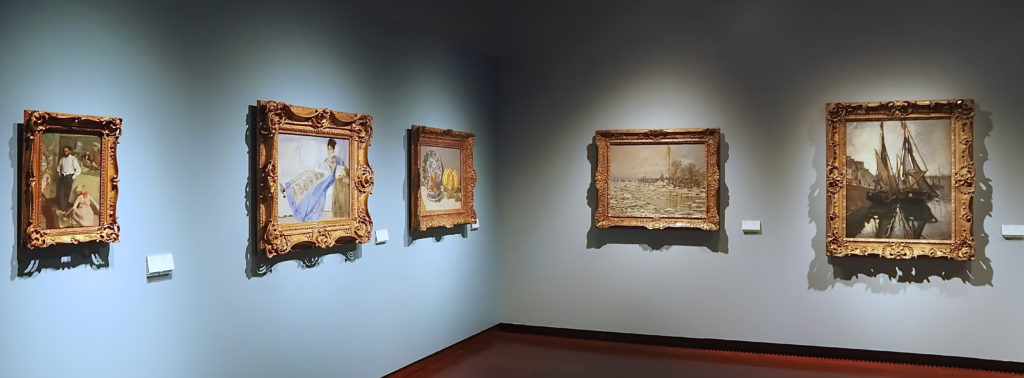Quick Hits
Daily brief research updates from the cognitive sciences

“Imagine you are a master thief doing a heist at an art museum,”. These were the instructions, that may sound strange, at the start of a scientific experiment. All harmless of course and something we can relate to with many an entertaining film about master thieves.
This was all part of setting the scene in a computer game to measure memory in a clever experiment conducted by Alyssa Sinclair and colleagues at Duke University. But, and this is crucial, the instructions given differed slightly and this is what led to different learning and recall outcomes.
The potential master thieves, study participants, 420 adults in all, were told that they were in the moment of the heist itself or, alternatively, that they were scouting out the museum for a future heist. The virtual museum was exactly the same with four coloured doors leading to four rooms with different collections of art with some picture and collections being more valuable than others.
And these two mindsets labeled a high-pressure mindset, needing to perform in the moment, and a curious mindset gave noticeably different outcomes when measured the following day.
The following day participants logged back in and were queried on their recall of the paintings and their values. They were presented with a whopping 175 pictures, 100 from the game and 75 additional ones, and asked to identify them and place the respective values to them.
Those who were in the scouting, curiosity, mode, the curiosity mindset were much better at identifying the correct pictures and assigning the correct values to them.
It seems that this lower-stress state allows for better mapping of the world and therefore better memory and recall. However, it’s not all bad for the high-pressure mindset. Though recall was lower, they were able to more effectively identify the highest value pieces and subsequently “won” on collecting the most stash.
This highlights what other research has pointed to, namely that high-pressure is good for value-based judgements in the moment. This is the proverbial scenario of escaping from the threatening bear – if you are faced with a bear, scouting the environment and remembering this, is not the best strategy and immediate value-based i.e. save my neck, judgement is needed.
It also does show that curiosity is effective for learning and needs to be in lower pressure situations. This in our adult lives can, however, be challenging, as it can be for many businesses. We are often moving constantly from one high-pressure situation to another and this can therefore impede learning and recall (not to mention leave us in a constant state of stress).
So the big outcome of this is that for learning and recall, curiosity is the best mindset – and this is something that is free and accessible to all of us.
Curious to learn more? I reported previously that curiosity could be an inborn trait and the newly discovered brain networks that drive curiosity.

Andy Habermacher
Andy is author of leading brains Review, Neuroleadership, and multiple other books. He has been intensively involved in writing and research into neuroleadership and is considered one of Europe’s leading experts. He is also a well-known public speaker, speaking on the brain and human behaviour.
Andy is also a masters athlete (middle distance running) and competes regularly at international competitions (and holds a few national records in his age category).
References
Alyssa H. Sinclair, Yuxi C. Wang, R. Alison Adcock.
Instructed motivational states bias reinforcement learning and memory formation.
Proceedings of the National Academy of Sciences, 2023; 120 (31)
DOI: 10.1073/pnas.2304881120
More Quick Hits
How Meditation Helps Pain In Your Brain
Quick HitsDaily brief research updates from the cognitive sciences es, meditation can help with pain by changing your experience of it. I reported on that here. Another piece of research just published shows that how experienced meditators and...
When Stress Is Good For Brain Functioning
Quick HitsDaily brief research updates from the cognitive sciences tress gets a bad rap – understandably it is a negative experience and has been shown over long periods of time, and with high intensity, to cause multiple negative outcomes, from...
Put Your Smartphone Down and Let your Mind Wander – You’ll Be Happier
Quick HitsDaily brief research updates from the cognitive sciences here’s a lot been said about smartphone usage and how it can be used and abused. Most of this concern revolves around usage in children or teenagers, however, with some research...
The Amazing Impact Of Reaching Out To Your Old Friends
Quick HitsDaily brief research updates from the cognitive sciences few weeks ago a friend I hadn’t seen for about 10 years sent me a message and asked if I had time to meet up. I was elated. "Sure," I immediately messaged back, "when and where?!"...
Really? Belief In Conspiracies Not Increasing
Quick HitsDaily brief research updates from the cognitive sciences e may feel like we’re in an age of conspiracy theories, that social media is turbocharging the wild and wacky theories, and the so-called information bubbles are sending people down...
You Wake Up 100 Times Each Night – And That Helps Memory
Quick HitsDaily brief research updates from the cognitive sciences have written numerous posts and articles on sleep and the brain (review here), and the evidence is crystal clear. Good and consistent sleep is essential to all aspects of physical...






